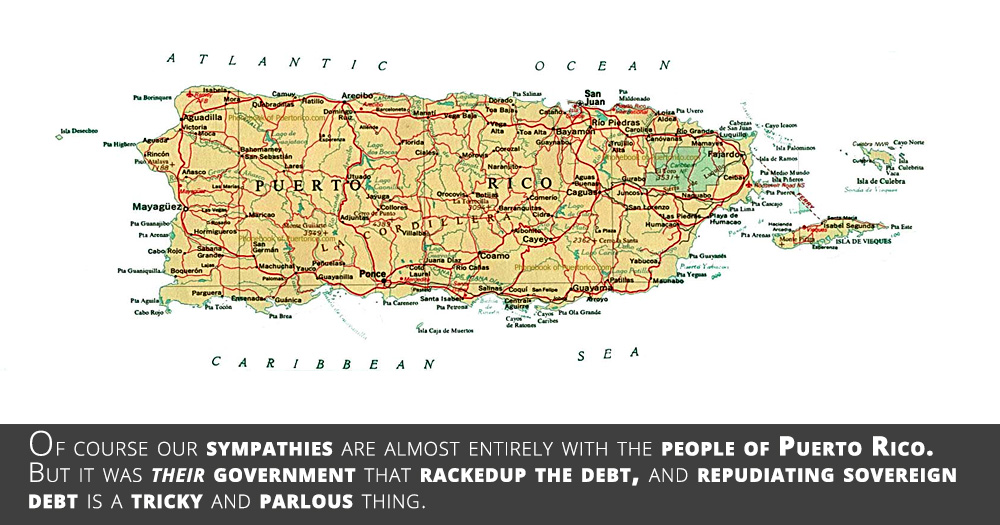First, do no harm. Second, stop harming.
You might think that these would be the Two Commandments of Government.
But no.
Politicians make a good show of saving us, sure. Sadly, appearance alone suffices. For them. Much easier to announce a new program than get rid of a harmful old one.
Latest case? Courtesy of a storm and a new president, we now get to witness hurricane recovery mismanagement all over again, but this time outside the continental United States.
“The administration announced some bad news for Puerto Rico,” writes Scott Shackford at Reason. It will not, Mr. Shackford explains, “be waiving the Jones Act, which significantly restricts the ability of foreign or foreign-owned ships from bringing goods to Puerto Rico.”
The “unincorporated U.S. territory” that is the island must take its lumps.
The Jones Act* limits foreign ships port access . . . down to one. The mandate allowing port-to-port commerce only to American-manned ships is designed to save a few jobs and grease a few union wheels in the mainland.
And now, especially, that old, ongoing “centralized government planning for the benefit of a small group of powerful U.S. shipping interests” amounts to a real kick to a people already devastated by Hurricane Maria.
Closing ports to much needed help doesn’t help. An emergency order could suspend the ongoing harm of throwing roadblocks in the way of a swift recovery and rebuilding.
Or Congress could repeal the Jones Act entirely.
Neither is likely.
So the wounded Puerto Ricans — prior to the storm hobbled by years of territorial misgovernance — can expect more fake government help.
This is Common sense. I’m Paul Jacob.
* Not to be confused with the Jones-Shafroth Act of 1917, which set up territorial governance of the island.



